Leo and the USCCB Defend Illegal Alien Criminals and Bless Sodomy
The same prelates who shield lawbreakers at the border shield worse inside the sanctuary.
There is something darkly comic about watching the United States Conference of Catholic Bishops pretend to be outraged. They have slept peacefully through decades of doctrinal rot, sacramental abuse, collapsing vocations, empty seminaries, catechetical starvation, and parishes dying like autumn flies. None of that warranted a “Special Message.” None of it rose to the level of episcopal trauma.
But immigration enforcement? Please. Fetch the smelling salts.
In Baltimore, the bishops declared an emergency because the United States occasionally enforces the law. They stood, hand-wringing, moist-eyed, and voted 216–5 to condemn the “climate of fear” allegedly created by deportations. When they finished congratulating themselves, they applauded loudly enough that the walls of the hotel ballroom may have trembled.
They were not applauding Catholic doctrine. They were applauding themselves for discovering that the Democratic Party has a heart.
The resulting document reeks of post-conciliar moral mush. It wraps politics in pious language and pretends the package is a teaching of the Church. From a Catholic vantage point, the message is a theological counterfeit: sentimental, selective, and dishonest. It collapses justice into feelings, charity into permissiveness, and Scripture into a set of props for an immigration NGO.
The bishops want applause from the world. What they need is a reminder of Catholic tradition.
This is that reminder.
The Bishops “Discover” Borders Exist—and Immediately Apologize
Midway through their marathon séance of compassion, the bishops offer a single, fragile sentence acknowledging Catholic teaching:
“Nations have a responsibility to regulate their borders and establish a just and orderly immigration system for the common good.”
One sentence. A tiny crumb of orthodoxy tossed to the floor.
Because after that solitary burst of sanity, the bishops get right back to treating border enforcement as if it were a violation of the Beatitudes. The message grieves, laments, sorrows, and mourns its way through every possible emotional angle of illegal immigration. Mothers trembling. Children sobbing. Families torn apart. Priests unable to provide pastoral care in detention centers. A climate of fear settling over the land like a biblical plague.
What is conveniently missing is the Catholic doctrine that predates all of this post-1965 sentimental haze: states not only may regulate immigration; they must. It is not a suggestion. It is a duty.
Aquinas doesn’t ask whether a nation is allowed to have borders. He assumes it. The common good requires boundaries. A community that cannot say who may join it is not a community at all; it is a geographical fiction waiting to be dissolved. The Catechism of the Council of Trent treats the preservation of order as a non-negotiable obligation of rulers. Pre-conciliar theologians write about the right of nations to restrict immigration as casually as they write about the need to regulate alcohol.
This is not fringe. This is not “conservative.” This is the Catholic tradition.
The bishops’ message is a parody of that tradition. It gives a polite nod to sovereignty, then spends a thousand words describing immigration enforcement as if it were a pharaonic oppression. The one line about borders is a fig leaf to cover what follows: a sustained attack on the moral legitimacy of deportation, detention, profiling, and legal status itself. In other words, the entire message treats border enforcement as a near-sin.
This is political rhetoric, not theology. And it would have been laughed out of the room by every pope prior to John XXIII.
The Doctrine the Bishops “Forgot”: Obedience to Just Laws
The entire document reads as if illegal immigration were an unassailable human right, and immigration law were merely a collection of regrettable technicalities inflicted by cruel bureaucrats.
In reality, Catholic doctrine has always insisted that obeying just laws is a moral obligation. It falls under the Fourth Commandment. Saint Paul could not be clearer: “Whoever resists authority resists what God has appointed.”
Illegal immigration is not simply a “struggle.” It is a violation of justice. To enter a country by breaking its laws, laws passed by the legitimate authority God has placed over that territory, is objectively wrong. Again, motives may be understandable. Circumstances may be tragic. But the moral nature of the act remains.
You would not know any of this from the USCCB statement. There is no suggestion—none—that immigrants themselves have duties. No admonition that breaking immigration laws has consequences. No acknowledgment that a sovereign nation may rightly demand compliance with its statutes. Instead, the bishops describe enforcement as if it were a cosmic injustice. Children fear their parents may be detained. Families fear separation. Immigrants fear profiling. Fear, fear, fear. The bishops want to weaponize fear like a liturgical prop.
But fear is not a moral argument. It is a political tactic.
Under traditional Catholic moral theology, a person who has no legal right to remain in a country may be deported. Deportation is not cruelty; it is the state’s just application of its own laws. If someone lives in constant fear of deportation, the bishops might consider offering the person a far more Catholic piece of advice: rectify your situation. Leave and reapply legally. Confess the violation. Amend your life.
But no such counsel appears. The bishops are not pastors here. They are activists.
Human Dignity vs. National Sovereignty: The Fake Moral Dilemma
The bishops insist human dignity and national security are not in conflict. And then proceed to imply they are.
They treat every action by immigration enforcement as if it were an assault on sacred dignity. Dignity becomes a rhetorical magic wand. Touch it to anything politically undesirable, and the thing becomes unclean. Detention centers? Violation of dignity. Deportation? Violation of dignity. Border enforcement? Threat to dignity. “Profiling”? Violation of dignity.
What about the dignity of American citizens living in border towns terrorized by cartel violence? What about the dignity of working-class families whose wages collapse under illegal labor? What about the dignity of parents burying children killed by fentanyl trafficked through a border held open by political abdication?
These people do not appear in the bishops’ document. They do not count. They are not exotic enough, vulnerable enough, or politically useful enough.
But they possess human dignity too.
Catholic teaching has always insisted that charity toward strangers does not eliminate justice toward one’s own. A ruler who refuses to protect his people is a failed ruler. A shepherd who worries only for sheep across the valley while wolves devour the flock before him is not compassionate; he is negligent.
The bishops do not want prudence. They want applause.
Leo XIV Joins the Choir: Seamless Garment Politics in Papal Vestments
The USCCB’s melodrama is not accidental. It mirrors Rome.
Leo XIV has already deployed the old “seamless garment” weapon: implying that a Catholic who opposes abortion but supports immigration enforcement may not actually be pro-life. This is a line crafted by political strategists, not theologians. It conflates intrinsic evil (murdering the unborn) with prudential matters (border policy). It dilutes moral clarity into a smoothie of political platitudes.
Classic Catholic theology distinguishes categories. Intrinsic evils are always wrong. Prudential questions can be legitimately debated. A border wall is not a moral absolute. Abortion is. Deportation is not a sin. Dismembering a child is.
But Leo XIV speaks as if ICE agents are one step removed from Herod’s soldiers.
In his airy metaphors, “the Church builds bridges, not walls,” unaware, or unwilling to admit, that God Himself ordered the walls of Jerusalem rebuilt, and that the Heavenly City in Revelation has gates, measurements, and guarded entry. A wall is not a symbol of hatred. It is a symbol of order. Even the Vatican has them.
Leo’s rhetoric serves one purpose: to baptize the left-wing framing of immigration as a sacred cause. And the bishops follow suit because it absolves them of the hard work of actual shepherding. It is easier to scold a border patrol agent than to rebuke a priest for sacrilege.
The Deafening Silence on Sacrilege
Here lies the real indictment.
While the bishops used their most solemn corporate voice to defend illegal immigrants, an open sacrilege unfolded in New York. Gio Benitez, a man in a civil “marriage” with another man, was publicly confirmed at a Catholic parish with his male partner standing as sponsor. Cameras flashed. Reporters swooned. The parish celebrated the spectacle. Social media lit up with applause.
The Baltimore Catechism, still binding in every pre-conciliar parish, teaches clearly that Confirmation may not be received in mortal sin. A man living in a homosexual relationship is, by definition, not in a state of grace. A same-sex partner cannot serve as sponsor. The entire event was a walking contradiction of Catholic faith.
Where was the USCCB’s outrage? Their “climate of fear”? Their tears? Their “deep concern”? Nowhere. They said nothing. They issued no “Special Message.” They offered no correction. They showed no grief.
A sacrament was defiled. A parish priest demeaned the faith. A national media figure used the Church as a Pride Month spectacle.
The bishops shrugged.
But tell them that America is deporting individuals who entered illegally, and suddenly they transform into prophets of Amos.
This is cowardice. The bishops choose morally fashionable causes and ignore the spiritual cancers metastasizing in their own sanctuaries.
The message is unmistakable: illegal immigration is a crisis. Sacrilege is a scheduling inconvenience.
What a Catholic Immigration Statement Would Look Like
A bishop formed in the tradition of Leo XIII or Pius XII would speak differently.
He would state plainly that nations have a right, indeed, a duty, to control who enters their borders. He would affirm the obligations immigrants have to obey the laws of the country receiving them. He would warn that entering illegally is morally wrong and must be rectified. He would remind the faithful that deportation is not immoral when carried out justly.
He would also exhort Catholics to genuine works of mercy: feeding the hungry, aiding refugees, protecting families, supporting legal immigration pathways, and helping migrants integrate into the Church’s sacramental life.
He would condemn cruelty, yes, but he would also condemn lawlessness. He would condemn anti-immigrant hatred, but would also condemn the exploitation of loopholes, the trafficking cartels, and the political theater that collapses order into chaos.
But the bishops cannot speak this way anymore. Their formation makes it impossible. They know the headlines they want. They know the causes that sound compassionate without offending donors. And so they preach political mercy while ignoring sacramental truth.
And the flock suffers for it.
Conclusion: The Real Border Crisis Is Inside the Church
America’s immigration problem is real. Millions of illegal crossings, cartel exploitation, human trafficking, collapsing border towns, and political paralysis. But the deeper crisis is not at Eagle Pass.
It is inside the Church.
It is the crisis of bishops who condemn deportation but whisper about sacrilege. Bishops who cry over detention centers but not over lost souls. Bishops who issue urgent “Messages” about border enforcement but remain silent while parishes bless same-sex unions, promote gender ideology, and treat the sacraments as props for social media branding.
A nation must defend its borders or it dies. A Church must defend its doctrine or it decays.
The bishops have forgotten both truths.
They look at the southern border and see a moral emergency. They look at the sanctuary and see nothing wrong. They warn America about the danger of secure borders. They say little about the danger of open heresy.
This is the real crisis.
And until the Church remembers her own walls, her own gates, her own divine boundaries, every moral lecture on immigration will ring hollow.
It is not un-Catholic to enforce a border.
It is un-Catholic to betray the faith.
If you value independent Catholic analysis and want to help keep this work going, you can make a contribution or subscribe below. Every donation directly supports the writing, research, and production of Hiraeth in Exile.
Thank you for helping preserve independent Catholic journalism rooted in truth and tradition.


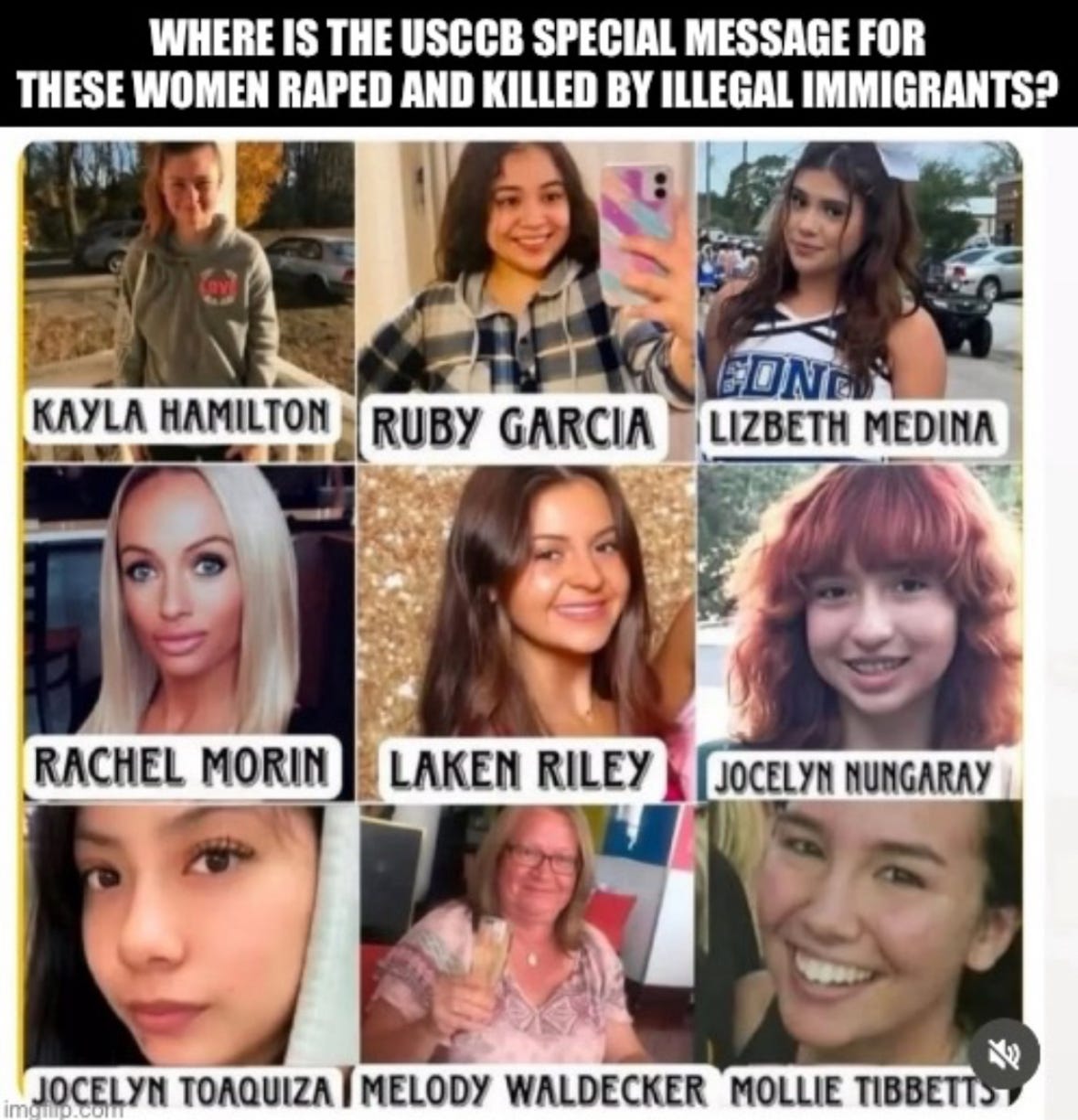
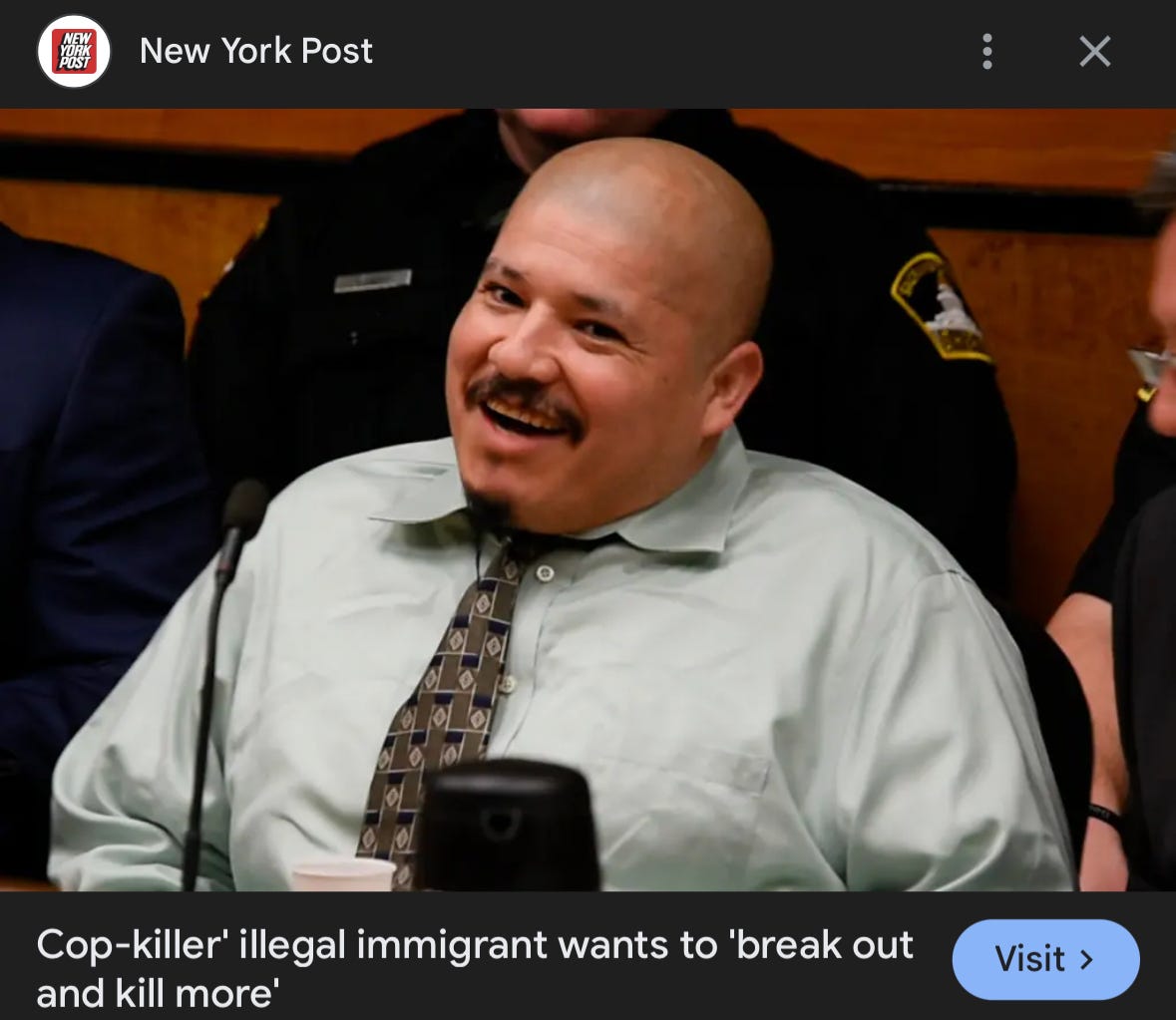
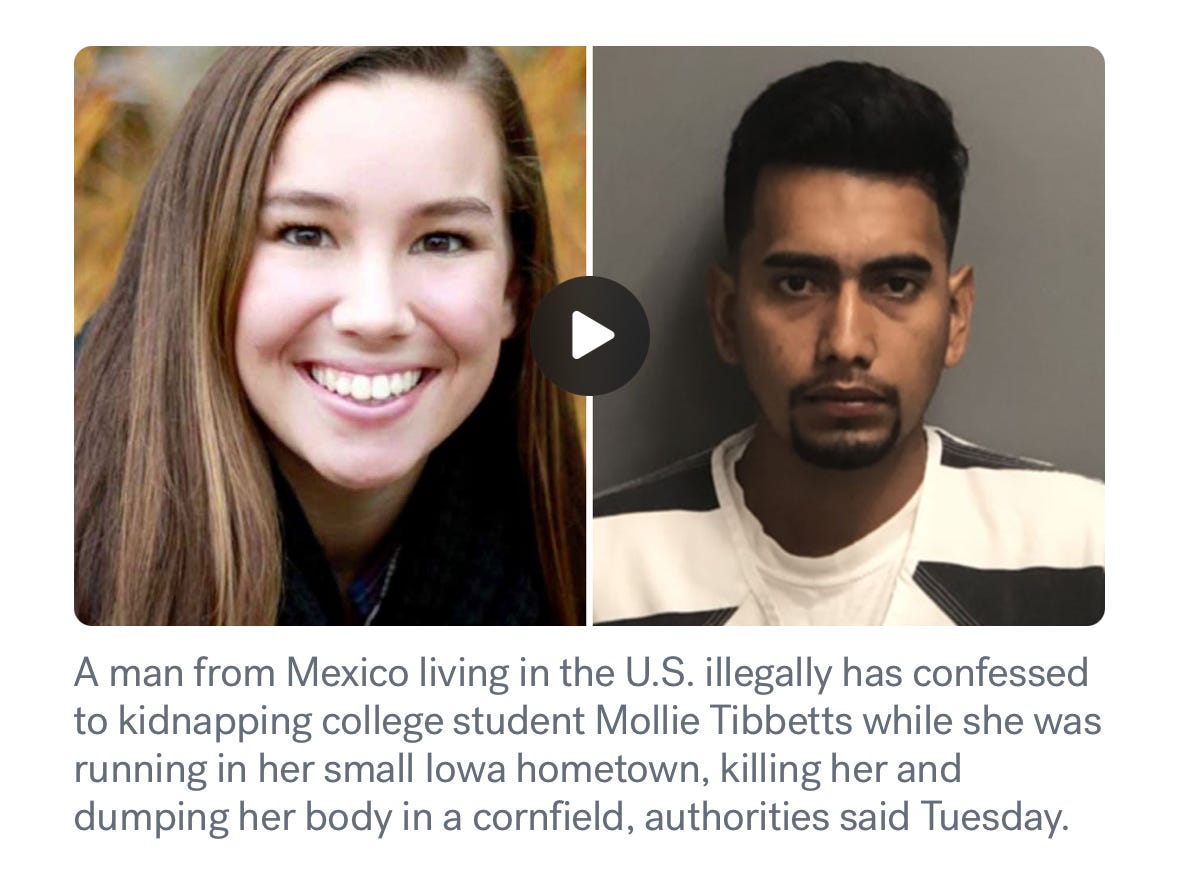
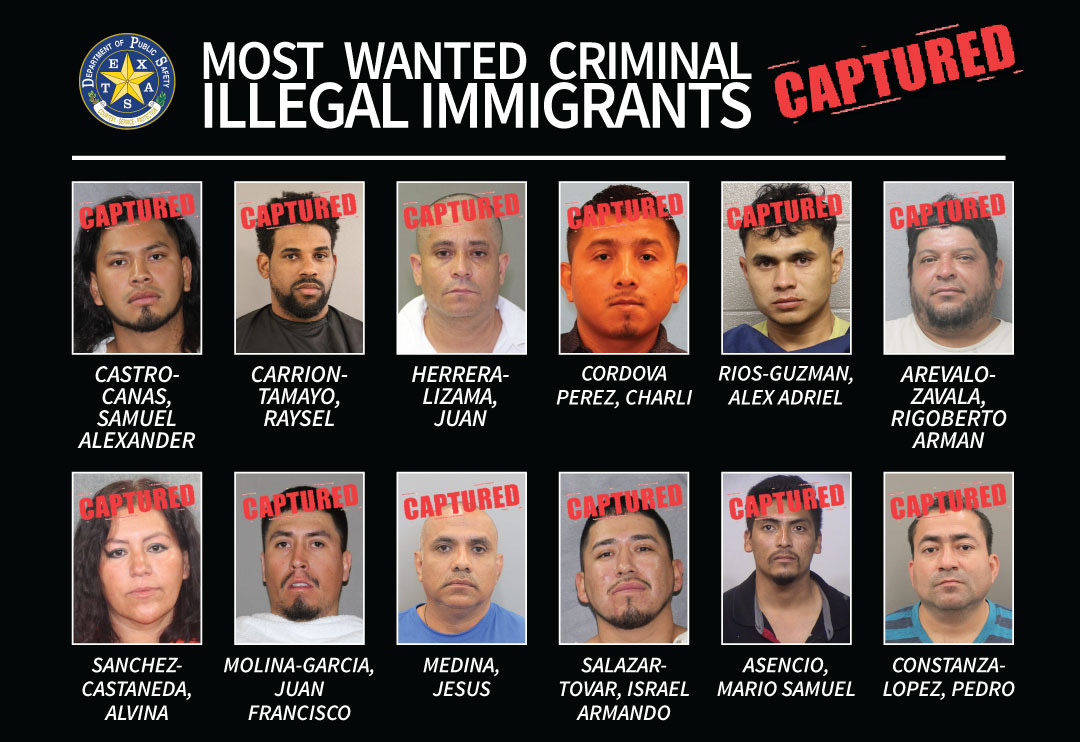
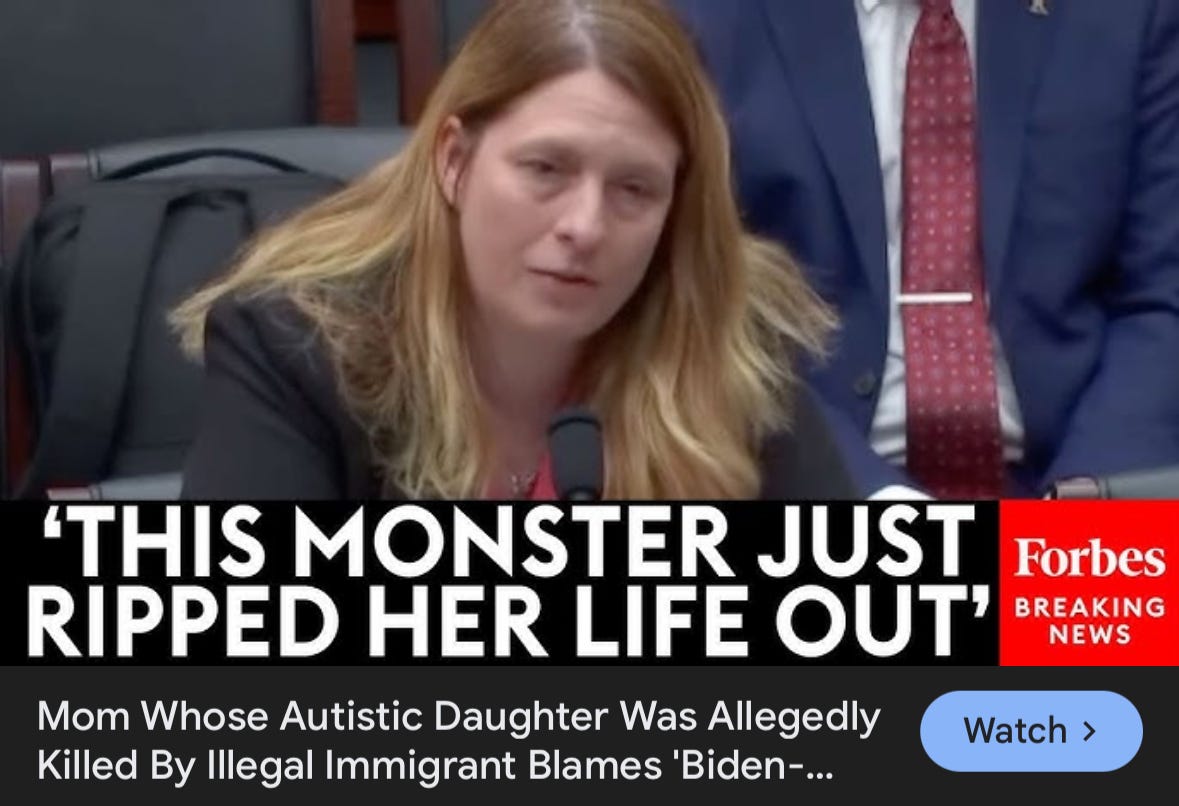
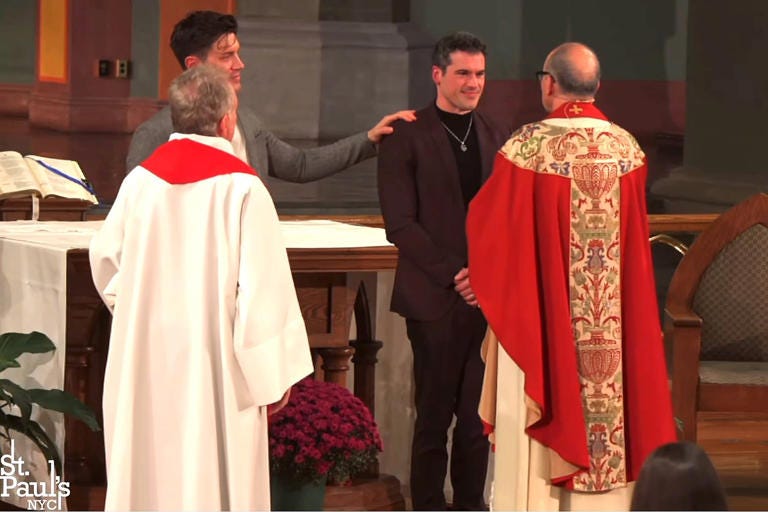

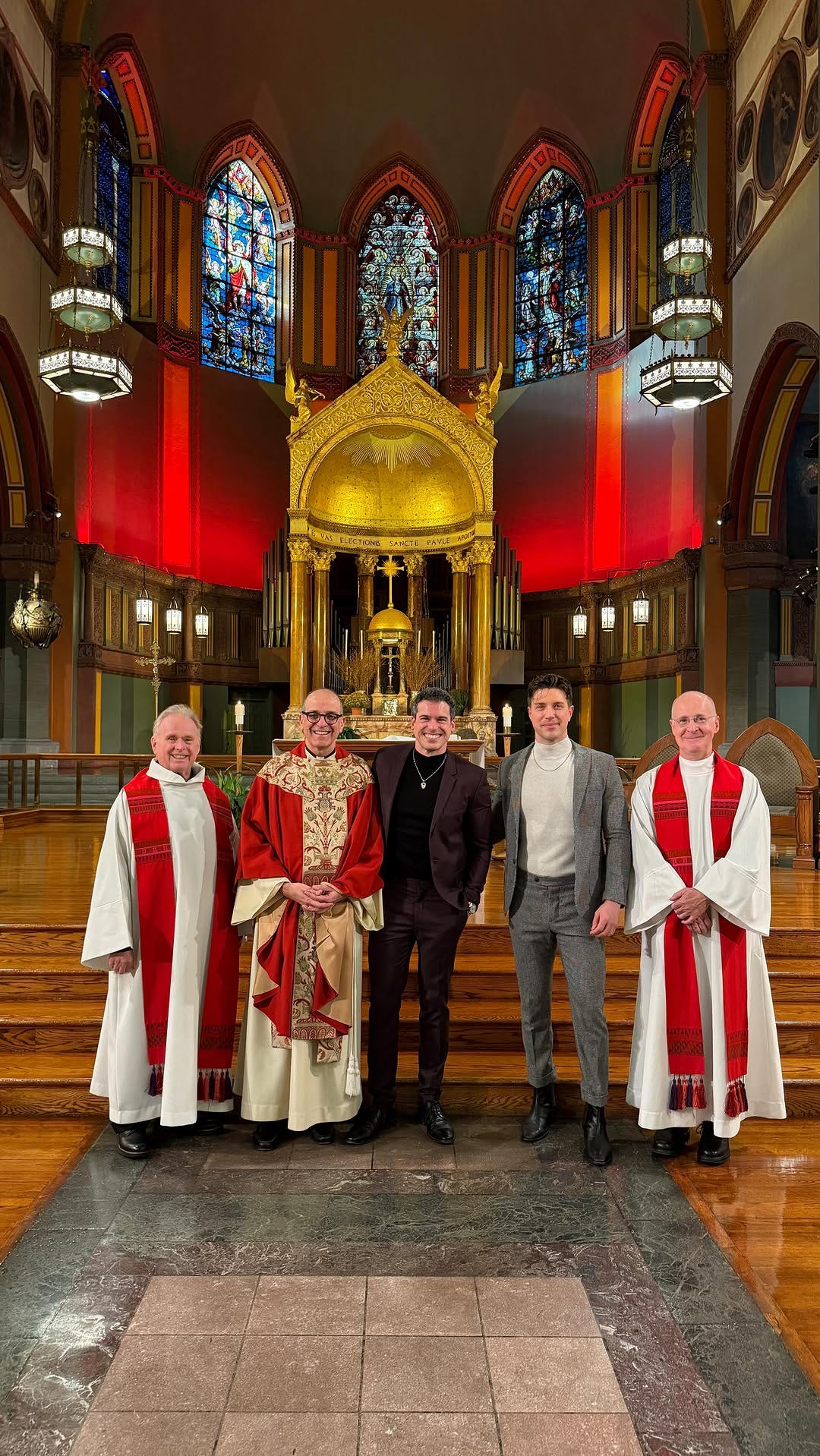
Follow the money. The USCCB gets funds from the government-- or government policies established by democrats who use immigration as a means to achieve more voters who keep them in power.
Such moral inversion is not surprising if, as one insider has said, 80% of the fake bishops in the US are homosexual.